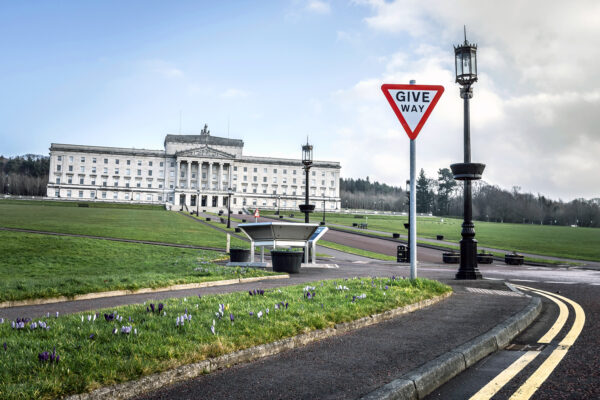
The republican Sinn Féin has become the largest party in Northern Ireland for the first time. Although mostly as a result of the Democratic Unionist Party (DUP) going down. In elections this week, Sinn Féin defended their 27 seats in the Northern Ireland Assembly with a 1.1 percent increase in votes. The DUP went down from 28 to 25 seats.
The winner was the nonsectarian Alliance party, which doubled its seats from eight to 17.
The results call the longevity of Northern Ireland’s obligatory power-sharing between Catholics and Protestants into question.
Wise
When peacemakers ended the thirty-year Troubles in 1998, they were wise to require the two communities to share power. Religion and loyalty to respectively Ireland and the UK were the salient issues in Northern Irish politics.
Now Sinn Féin, formerly the political wing of the Provisional Irish Republican Army, is becoming a normal center-left party. It still seeks unification, but it campaigned on reducing living costs and improving access to health care.
The share of the electorate that didn’t experience the Troubles is growing. More voters, especially from Protestant backgrounds, identify as secular. These trends converge in the rising popularity of the Alliance.
Successes
These are successes of the Good Friday regime. Peace and power-sharing have moderated a party that used to defend violence (Sinn Féin) and softened sectarian loyalties.
The exception are the unionists. Their share of the electorate, and of the population, is shrinking. The DUP and Ulster Unionist Party together lost four seats, going down to 34. They have lost seats in every election since 2003, when the unionists peaked at 59 seats.
In addition to becoming a minority in the province, the unionists fear widening separation from the rest of the UK. Since Brexit, goods traveling between Northern Ireland and Great Britain must be inspected, in effect laying a customs border down the Irish Sea, to avoid such controls on the land border with the Republic of Ireland. It has become easier for Northern Ireland to do business with the republic, which is still an EU member, than with the rest of the United Kingdom.
Little incentive
If these electoral trends continue, the unionists will have less and less incentive over time to change the political system.
As long as they remain the first or second party, they are guaranteed one of Northern Ireland’s two prime ministerships. Although the second is called the “deputy” prime minister, he or she has the same powers as the first. They co-chair the executive, in which all the largest parties are automatically given ministerial posts.
The DUP have nevertheless rejected the deputy prime ministership. If they stick by that, and Sinn Féin is unwilling to give the DUP the first prime minister, self-government could be suspended and the province would be ruled from London.
Which would be acceptable to the unionists, especially since their allies, Boris Johnson’s Conservatives, are in power in Britain. It would be far less tolerable to the nationalists and unaligned, and could push them toward supporting unification with Ireland.
(No) alternative
In any other democracy, Sinn Féin and Alliance could get around a recalcitrant DUP by forming a center-left government with the Social Democratic and Labour Party, who have eight seats. That is impossible under the Good Friday Agreement.
The only way Alliance could claim one of the two prime ministerships is if it placed first in the election. As long as the largest party is sectarian, the deputy prime minister must come from the second-largest sectarian party, even if that isn’t the second-largest party overall. (More detailed explainer here.) If the sectarian parties fail to do a deal, power returns to London.
That needs to change. The rules of power-sharing were designed to reduce sectarian tensions, and for two decades they did. Now they threaten to heighten them at a time when more and more Northern Irish want to move on from the past.
